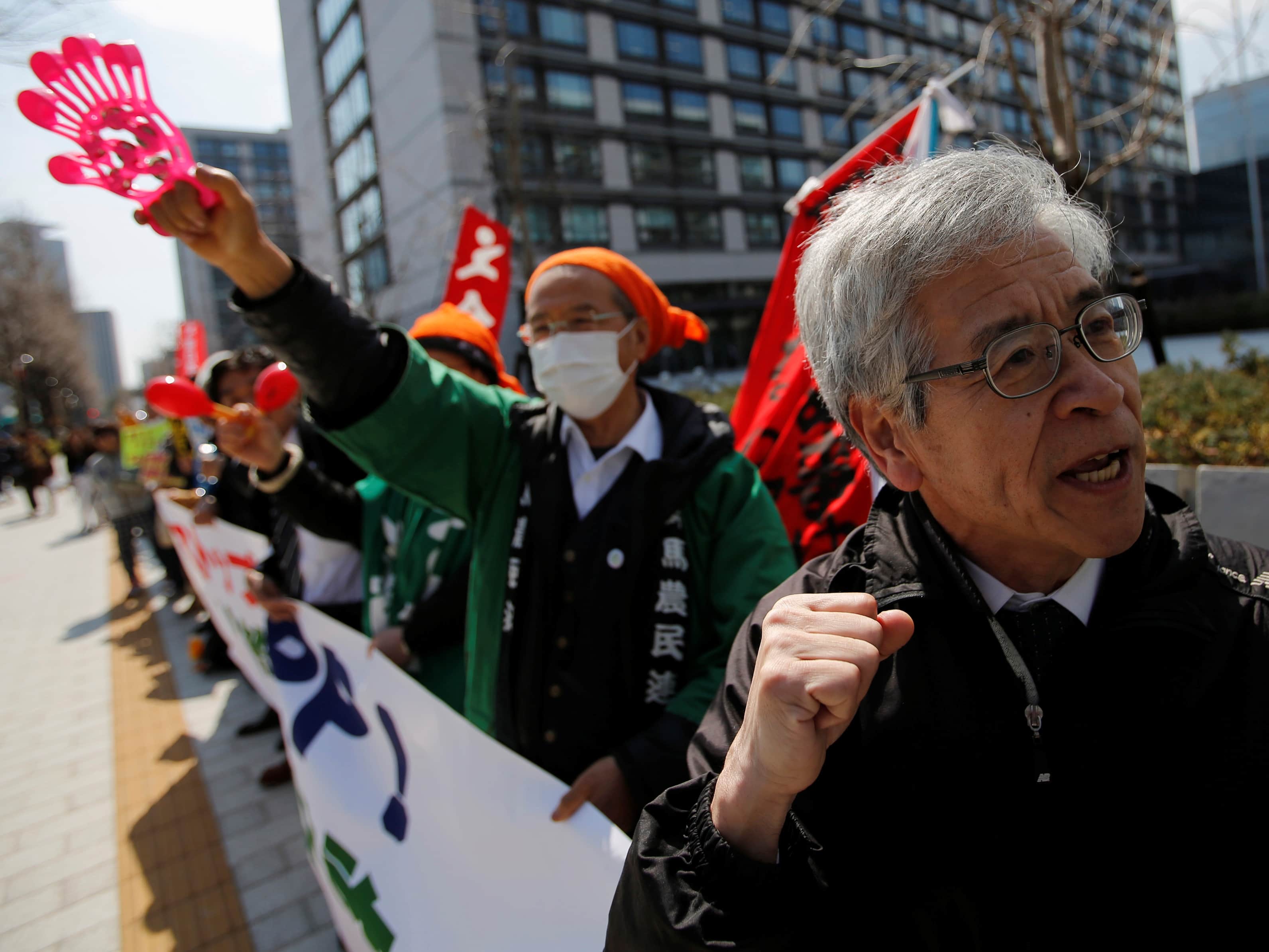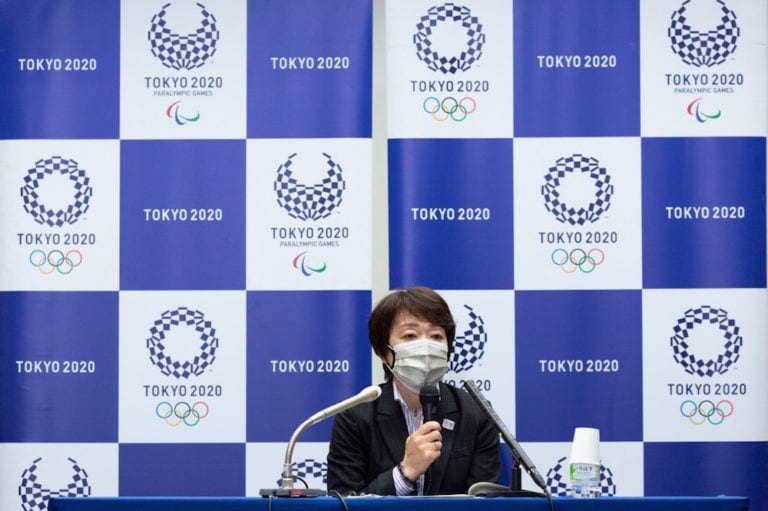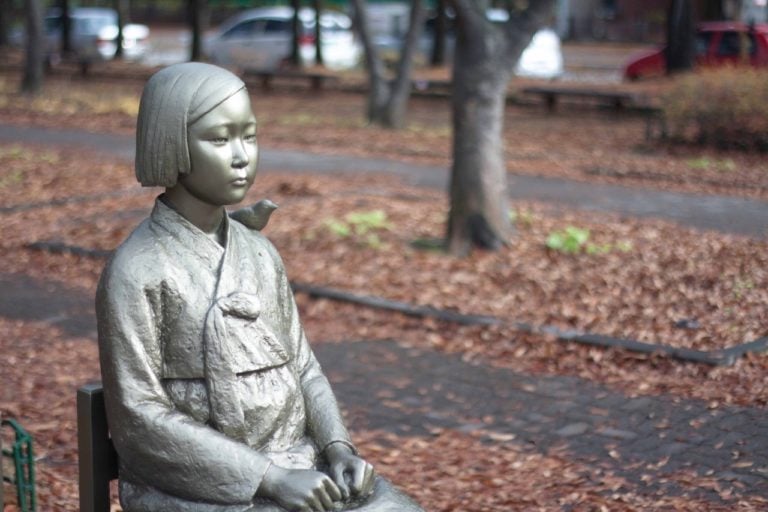Japan is arriving late to the Trans Pacific Partnership table, but its participation already risks making Japanese law harsher while demolishing the hard-won victories of copyright reformers in the country.
The Trans Pacific Partnership (TPP) agreement threatens the rights of Internet users in all its potential signatories, from Peru to Canada to the United States. On 23 July 2013, as part of the 18th round of meetings in Kota Kinabulu, Malaysia, a new country, Japan, officially joined the negotiations. Japan is arriving late to the TPP table, but its participation already risks making Japanese law harsher while demolishing the hard-won victories of copyright reformers in the country.
Japan has its fair share of severe copyright laws. Those who upload unauthorized copyrighted content can face up to 10 years in prison or approximately US$125,000 in fines. Last year, the Japanese government passed a copyright bill that created criminal penalties for downloading and simply viewing copyrighted materials. A charge for infringement can now result in a two-year prison sentence or close to a $25,000 fine. The same bill criminalized the circumvention of DRM [Digital rights management technologies], leading to approximately $30,000 in fines or a 3-year prison sentence for publishing anti-circumvention tools or methods that strip DRM off digital content.
In order to track which users are downloading “pirated” materials, the Recording Industry Association of Japan pressured ISPs to install spying technologies that will automatically block unauthorized uploads of copyrighted content. The national crackdown on digital piracy has continued this year as officials arrested 27 individuals for uploading unauthorized files.
On the brighter side, there have been some recent concerted efforts against severe copyright restrictions. In 2006, the U.S. requested Japan extend its copyright term lengths from 50 years after the life of the author to life plus 70 years. When the Japanese government bowed to this pressure, lawyers, academics, artists, and the anime community responded in an uproar. Copyright reform activists – including journalist and founder of the Japanese digital rights organization, MIAU, Daisuke Tsuda, copyright lawyer and professor Kensaku Fukui, and manga artist Ken Akamatsu – drove public resistance against the proposal, which led to it becoming so politically toxic that it was ultimately dropped.
The TPP has been deeply unpopular with certain communities in Japan. There have been massive, ongoing protests in opposition to the agreement even before it formally joined as a negotiating partner. Most of the opposition comes from the agriculture and manufacturing sectors, which see TPP as a threat to their industries. The copyright issues in the TPP however, have mostly remained under the radar. Fortunately, that’s beginning to change.
To raise more awareness about the threats TPP poses to Internet users, Japanese digital rights organization, the Movement for Internet Active Users (MIAU), organized a symposium on the potential impacts of TPP’s copyright chapter on Japanese law. There, they held a panel discussion on the impact of TPP on Japanese copyright law between aforementioned copyright reformers Daisuke Tsuda, Kensaku Fukui, and Ken Akamatsu, as well as a representative of Creative Commons Japan, Yuko Noguchi, and others. Thousands tuned in to watch the event, as the panelists discussed the TPP’s copyright provisions and the lack of transparency in the TPP process. The video of the symposium, in Japanese, is viewable here. This week MIAU submitted comments to the executive cabinet over these concerns.
For Internet users in Japan, there are three things in the TPP that threaten to change Japanese copyright law for the worse:
First, the TPP calls for lengthened copyright term protection that would run roughshod over previous Japanese rejection of such extensions. Just as the U.S. attempted to do previously, the agreement would extend copyright terms from 50 years after the life of the author to 70 years after the life of the author. For copyright terms based on the creation date, TPP would also extend it another 25 years to 95 years, or up to 120 for corporate owned works.
Second, it bans parallel importation, meaning it would require authorization from the copyright owner to import goods even if those goods were purchased legally in another country. This would greatly impact the sale and availability of content, such as DVDs or software, if the copyright owner decides they’d like monopoly control of distribution across national borders.
Finally and most crucially, TPP threatens to upend a principle in Japanese law called shinkokuzai, whereby crimes are not prosecuted without a formal complaint from the victim. In addition, TPP would impose statutory penalties for infringement even if there’s no proof of actual harm. This could lead to an even greater crackdown on file sharing and online, fan-generated comics that are core to the anime community.
The combination of all of these new restrictions has led Ken Akamatsu to describe the TPP as “destroy[ing]” the market of self-published transformative anime works, and diminishing the manga industry as a whole. The long fight such communities faced in battled local copyright proposals would be undermined by changes being enforced undemocratically through the secret trade agreement.
Even though Japan has not even begun participating in discussions, state officials are moving to make their laws compliant to the terms of the TPP. A major Japanese newspaper reported that lawmakers are making preparations to re-introduce copyright amendments to lengthen copyright term protections to 70 years after the life of the author.
Negotiators have been aiming to finish drafting the language and sign the agreement by October. While the U.S. and others still hope to conclude TPP this year, some sources say it’s unlikely that they will meet that deadline. Japan’s admission into TPP, as well as stalemates over certain issues, such as copyright enforcement, are expected to delay negotiations. Although this may seem encouraging, these outlying controversial provisions may be settled purely based on “political compromises” where states would trade off users’ digital rights to appease certain other industrial sectors.
Hopefully, the long-standing Japanese opposition to the TPP will further hold up talks. Until national trade leaders open up the process to allow public interests to see and participate in the drafting of this text, this trade agreement will remain illegitimate. In the meantime, we’ll be fighting to prevent this agreement from further assailing democratic oversight in this process at the expense of Internet users around the world.



